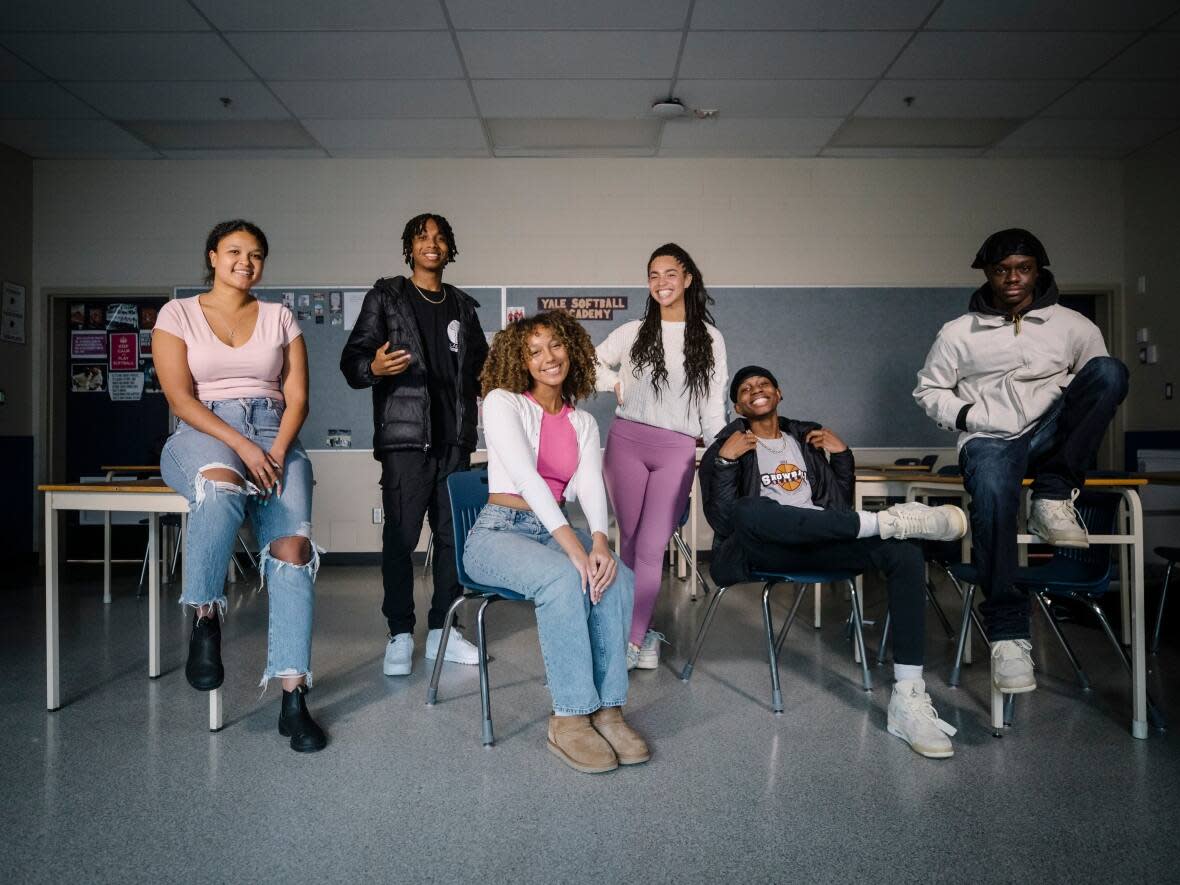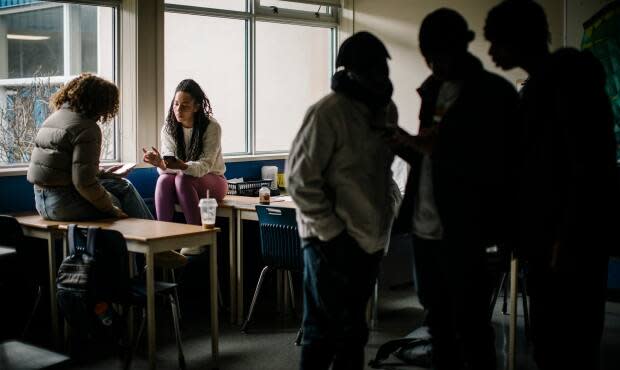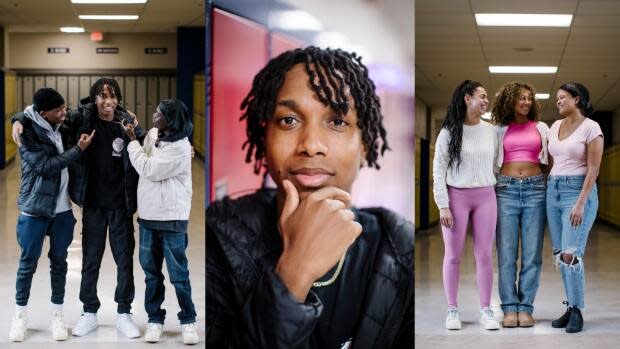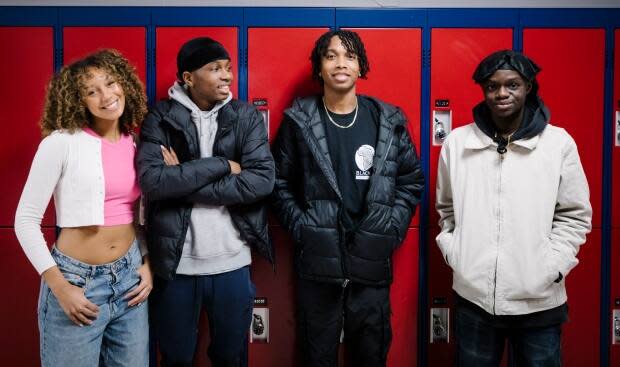High school club in B.C.'s Fraser Valley provides connection and support for Black students

Four friends gather inside a classroom at Yale Secondary School in Abbotsford, B.C., 70 kilometres east of Vancouver. Their connection radiates trust and understanding as they laugh, listen, and have serious conversations about growing up being Black in B.C.'s Fraser Valley.
Sierra Webster, Mainza Mwale, Pierre Lollar and Ashour Ashour are all part of Black Connections HS.
Their teacher Shayla Bird says the club has been striving since 2021 to empower Black high school students in Abbotsford.
"Students were experiencing a lot of anti-Black racism and didn't really have the people or the resources to act on what they wanted to see."
In B.C., the Black population is growing, but at a slower pace compared to neighbouring provinces, according to Statistics Canada. The club's members say Black students continue to face racism and isolation, which is why it's important to have an uplifting and supportive space.
"This space really takes Black excellency to the next level. It really is a safe place," said Mainza Mwale.

A safe space
Members say a safe space means having open and difficult conversations about racism and identity in high schools.
For Sierra Webster, it meant finding more confidence to speak about her mixed identity.
"I think I never really knew where I fit … [if] I should act more white or if I should act more Black. And I think I've really struggled with finding that in between for so long."

For Mwale and Pierre Lollar, the club feels like family.
"I can go to get all my frustration out and talk to people who understand where I'm coming from about my issues and racism," said Mwale.
WATCH | Students and their teacher discuss the club's importance to them:
Events and mentorship see growing demand
The volunteer-run club has about 100 members, with 60 students regularly attending biweekly after-school meetings.
Bird says it's been the busiest Black History Month for the group, which has been receiving several emails a day asking for support and help.
In the past, the students have visited Hogan's Alley in Vancouver, planned events featuring local Black vendors, organized movie nights and mentorship.

"They [Black students] started to trust us, and we got to know about their families and their passions and when they're applying for colleges, said Hailey Kendall, who volunteers as a mentor with the group.
She says it's heartwarming to see how the students hope to return as mentors and expand the club.
Growing the conversation
Bird says it's important to prioritize spaces like Black Connections in school districts, especially because Black students can feel isolated in the valley.
In the Fraser Valley, people who identify as Black account for approximately four per cent of the total population of people of colour, according to the 2021 census.

"When you have Black affinity spaces, it does not only just support your Black youth … you are shifting the community, and everybody is going to benefit from that," said Bird.
Rachna Singh, B.C.'s minister of education and child care, says Black, Indigenous, and racialized people face inequity and discrimination as part of a larger system of colonialism and racism that continues to persist within communities.
"We also know that students thrive when they feel understood and that spaces like this can lead to a greater sense of belonging, identity, and community. I applaud the Black Connections HS and the educators."
Clubs like Black Connections HS also give students a sense of solidarity, says Annette Henry, a professor in the Department of Language and Literacy Education at the University of British Columbia.
Annette has been leading a program called Black Futures at UBC for the last two years. Different high schools come once a month to hear from professors and learn about different professions and scholarship opportunities.
She says high schools, especially, can be challenging to navigate because they are "huge" spaces with many subgroups. When students can find a safer and more intimate space they can relate to, they feel acknowledged and ask more questions.
"Students need places and spaces where they feel they can ask questions that may be specific to them as Black children or young people."
"When you live in a town, and there might be 10 of you in Grade 11, you know, that's one thing, says Henry, but when you see 70 or 100 people your age in a room, that's hugely empowering."
For more stories about the experiences of Black Canadians — from anti-Black racism to success stories within the Black community — check out Being Black in Canada, a CBC project Black Canadians can be proud of. You can read more stories here.



